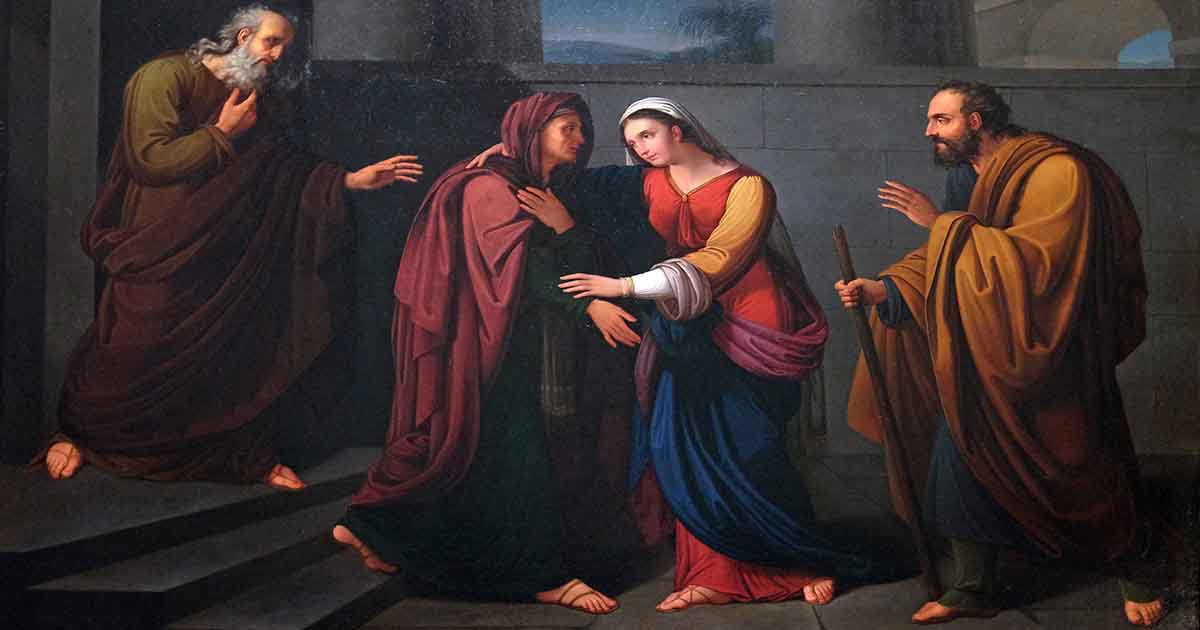In order to grow in our love of the Blessed Virgin Mary it is important to increase our knowledge of her. We can do this by reading good books about her – for example, the writings of the saints. However, it does not stop there. It is even more important to follow the example of her all-holy life. This we can do by imitating her virtues, all of which she practised to a perfect degree.
St. Faustina
St. Faustina Kowalska was a Polish religious sister who died in 1938. She was a member of the Congregation of the Sisters of Our Lady of Mercy, and perhaps is best known to-day for her diary, Divine Mercy in My Soul, [1] in which she wrote down the revelations given to her by Our Lord, Jesus Christ. St. Faustina was what we might call a ‘victim soul’, that is, one destined to suffer greatly in this life for the greater glory of God. During her life of suffering St. Faustina was comforted much by Our Lord Himself. The Divine Mercy Chaplet, given to St. Faustina by Jesus, is to-day one of the most popular devotions amongst the faithful.
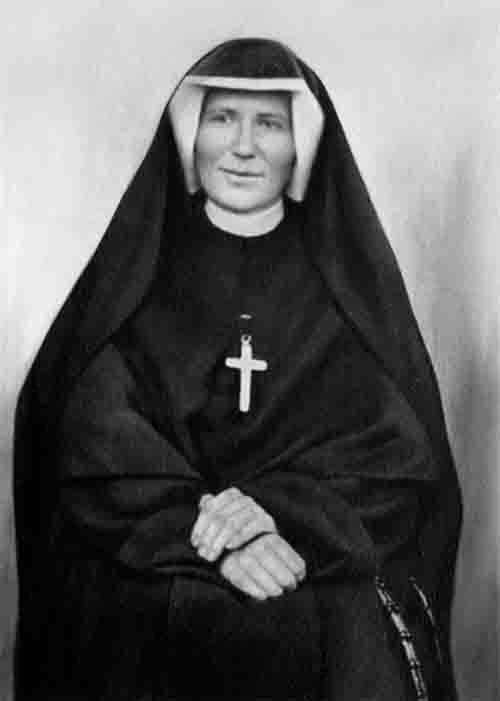
Revelations by the Blessed Virgin Mary
The Blessed Virgin Mary was the special Patroness of St. Faustina’s religious congregation, so it should come as no surprise to us that she received visits from the Holy Virgin too. Let us recall one such heavenly visit which St. Faustina recorded in her diary:
The Feast of the Immaculate Conception: Before Holy Communion I saw the Blessed Mother inconceivably beautiful. Smiling at me she said to me: ‘My Daughter, at God’s command I am to be, in a special and exclusive way your Mother; but I desire that you, too, in a special way, be my child.
Divine Mercy in My Soul, paragraph no. 1414
I desire, my dearly beloved Daughter, that you practise the three virtues that are dearest to me – and most pleasing to God. The first is humility, humility and once again humility; the second virtue, purity; the third virtue, love of God. As my Daughter, you must especially radiate with these virtues’. When the conversation ended, she pressed me to her Heart and disappeared. When I regained the use of my senses, my heart became so wonderfully attracted to these virtues; and I practise them faithfully. They are as though engraved in my heart.
Divine Mercy in My Soul, paragraph no. 1415
In this article we will speak briefly about those “three virtues that are dearest” to the Blessed Virgin Mary.
Humility
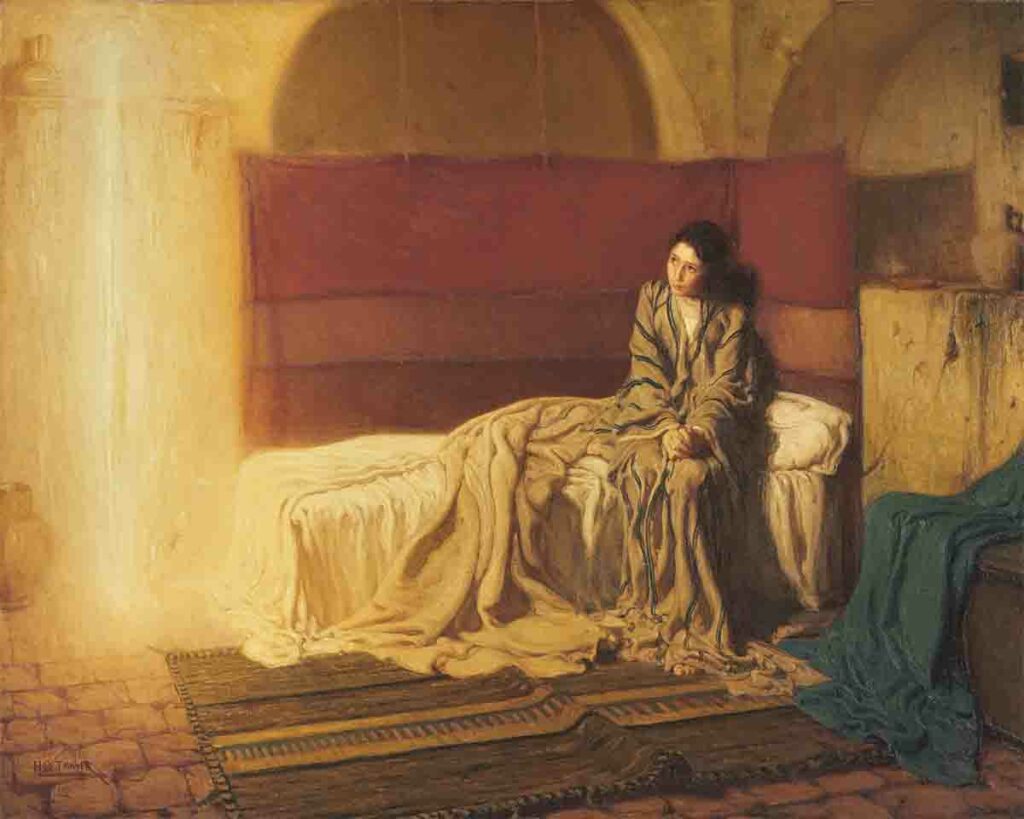
It is hardly surprising that the Holy Virgin gives first place to the virtue of humility. Many of the spiritual writers consider humility as the most important of the virtues and the foundation of a good spiritual life.
The word ‘humility’ is derived from the Latin word ‘humus’ which means ‘earth’. So to be humble is to be ‘down to earth’. Let us be clear that we are not talking about that false, exterior humility, the kind of false humility portrayed by Uriah Heep, one of the characters in the Charles Dickens novel David Copperfield. Rather let us look to that true humility as portrayed by the Holy Virgin in her response to the Archangel Gabriel:
“Behold the handmaiden of the Lord; be it done to me according to thy word.”
Luke 1:38
Humility is about recognising our own nothingness, and is opposed to the vice of pride. Spiritual writers tell us that if we suffer from a particular vice we should practise the virtue opposed to it. Thus if we have tendencies to pride or arrogance or envy or vainglory, then there is a great need for us to practise humility.
Humility is also about reconciling my will with God’s Will. We have seen how the Blessed Virgin Mary did not doubt God’s Word at the time of the Annunciation, but rather sought to do God’s Will. The Holy Virgin’s response should be contrasted with that of Zechariah, the father of John the Baptist: when the angel brought tidings that his wife would bear a son, Zechariah expressed doubt and was struck dumb as a punishment. (Luke 1:18-20)
When we obey faithfully legitimate commands given to us by our superiors – for example, by religious superiors in the case of religious, or by our parents in the case of children – then we are being humble as well as obedient.
Purity
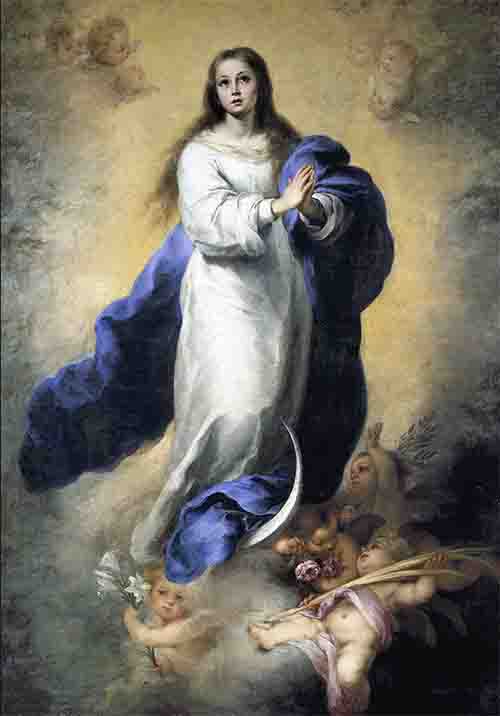
The second virtue mentioned by Our Lady is purity. In this centenary year of the Fatima apparition, it is well to note that at Fatima Our Lady herself spoke about how many souls go to Hell because of sins of the flesh.
Again we look to the Blessed Virgin Mary as an example for us to imitate. The French Redemptorist writer, Fr. Louis Colin, C.SS.R., has given us a beautiful description of the virtue of purity in the Holy Virgin:
“In regard to Mary, the liturgy shows itself lavish with titles reminding us of her candour, her innocence: she is all-beautiful, all-fair, all-immaculate; the virginal creature, inviolate, without stain, without spot, sinless; the sealed source, the enclosed garden, the closed door - in short, Purity itself.”
Our Lady, Queen of the Religious Life, English edition (1958), published by The Mercier Press Ltd., Cork, Ireland.
In to-day’s society perhaps no other virtue is under attack as much as the virtue of purity. We live in an age of widespread pornography and so we need to be careful about what we read and see in print or in the electronic media. So there is an ever more need for us to practise continence (continence is the control we possess over our evil inclinations, checking every unlawful desire). We should be modest in our behaviour, especially in the way we dress (modesty is the outward expression of purity). And we should be living chaste lives according to our state in life, obeying God’s laws in the area of morality (for those who are married that includes obeying His laws on marriage as given to us by the Church).
Love of God
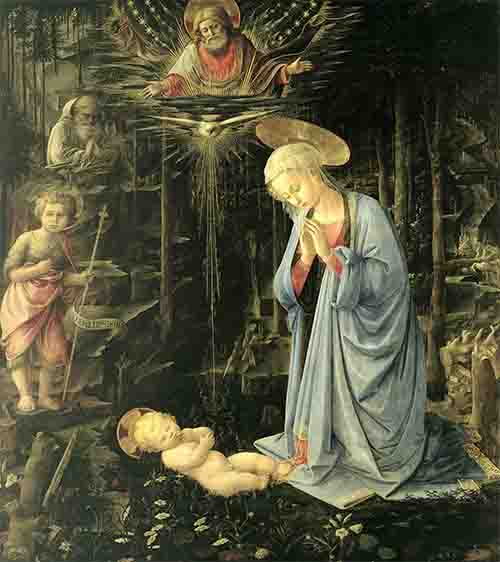
The third virtue mentioned by the Blessed Virgin Mary is love of God. What is ‘Love of God’ if not ‘Charity’? Charity is one of the three theological virtues (the other two being Faith and Hope). Charity may be defined as the virtue that causes us to love God above all things, for His own sake, in the way in which He loves Himself, and to love our neighbour for God’s sake. This corresponds to the two Great Commandments spoken by Our Blessed Lord in the Gospels:
“Thou shalt love the Lord thy God with thy whole heart, and with thy whole soul, and with thy whole mind…[and]...Thou shalt love thy neighbour as thyself.”
Matthew 22: 37-40
Early in St. Luke’s Gospel we are given an account of the supernatural charity exercised by Our Lady. In it we are told that at the time of the Annunciation the Archangel Gabriel informs Our Lady:
“And behold, Elizabeth thy kinswoman also has conceived a son in her old age, and she who was called barren is now in her sixth month; for nothing shall be impossible with God.”
Luke 1:36-37
The Gospel then goes on to tell us that “Mary arose and went with haste into the hill country, to a town of Juda” (Luke 1:39) to visit Elizabeth and “remained with her about three months.” (Luke 1:56)
Thus we see that the Virgin Mary made no delay in setting out on the long journey to visit her cousin, Elizabeth, and assisting her during her confinement.
For ourselves, in to-day’s world, it may well be that it is the second of the two Great Commandments that is the one more difficult for us to observe faithfully. Do we really see God in our neighbour? Perhaps the words of Our Blessed Lord may help us to remember:
“Amen I say to you, as long as you did it to one of these My least brethren, you did it to Me.”
Matthew 25:40
Conclusion
In this short article we have only had time to discuss very briefly just three virtues: those of Humility, Purity and Love of God – the three virtues “dearest” to the Blessed Virgin Mary.
If we want to advance in holiness we have to live a virtuous life, and to do this we have to practise all of the virtues. Holiness is not just for the few; the Second Vatican Council tells us that we are all called to holiness. (Lumen Gentium, paragraph no. 40)
So let us pray to her who is the Virgin Most Humble, the Mother Most Pure, the Queen of Charity, for the graces we need to make that advancement in holiness.
– friar Solanus Mary OFM Conv. (This is from an article published in the Crusader magazine, May 2017 edition.)

